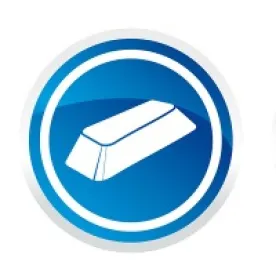The Conflict Minerals Rule has faced several challenges over the years by industry, and lawmakers have now taken action that may impact enforcement of the Rule. Specifically, on September 14, 2017, the U.S. House of Representatives approved an omnibus appropriations bill (H.R. 3354) that notably includes a provision to cut funding to “implement, administer, or enforce” section 1502 of the Dodd-Frank Wall Street Reform and Consumer Protection Act.
By way of background, the Conflict Minerals Rule, which was adopted by the U.S. Security and Exchange Commission (SEC) in September 2012, implements Section 1502 of the 2010 Dodd-Frank Act. The statute and the SEC’s implementing regulations require companies to investigate and publicly disclose whether their products contain conflict minerals, which are defined as columbite-tantalite (coltan), cassiterite, gold, and wolframite; related derivatives (tantalum, tin, and tungsten); or any other mineral or derivative, which the Secretary of State determines is financing armed conflict in the Democratic Republic of the Congo (DRC) or any adjoining country.
Although catalysts and the like that are produced from tin, tantalum, tungsten, and gold (the 3TGs) were not specifically exempted from the scope of the Final Rule, in response to industry’s efforts, the SEC verbally confirmed in May 2014 that chemical compounds manufactured from the 3TGs would be considered outside of the scope of the rule and, therefore, not subject to the Conflict Minerals provision’s annual reporting requirements. (For more information, see the PackagingLaw.com article, Chemical Compounds from the 3TGs Not Subject to the Conflict Minerals Reporting Requirements.)
Since 2013, the National Association of Manufacturers, the U.S. Chamber of Commerce, and the Business Roundtable (collectively NAM) have challenged various aspects of the final rule in court, alleging that certain parts of the rule are arbitrary and capricious or in violation of the First Amendment. (For more information, see the PackagingLaw.com articles, U.S. District Court upholds SEC Conflict Minerals Rule, U.S. Circuit Court of Appeals Upholds Most of SEC Conflict Minerals Rule, and SEC Orders Stay of Part of Conflict Minerals Rule Pending Judicial Review.) On remand from the U.S. Circuit Court of Appeals, the District Court entered a final judgment on April 3, 2017, providing that the requirement for companies to report to the SEC and state on their websites that any of their products “have not been found to be ‘DRC conflict free’” violates the First Amendment. The matter is now back with the SEC to resolve several open issues concerning implementation of the Rule.
Earlier this year, the SEC began to question the merits of the Conflict Minerals Rule. Notably, in a public statement issued on January 31, 2017, Acting SEC Chairman Michael S. Piwowar referred to the Rule as “misdirected” and directed his staff to reconsider the appropriateness of the 2014 guidance issued on the Rule. Subsequently, on April 7, 2017, Acting Chairman Piwowar stated that until uncertainties surrounding the requirement for due diligence on the source and chain of custody of conflict minerals are resolved, “it is difficult to conceive of a circumstance that would counsel in favor of enforcing them.” In particular, he noted that the primary function of the due diligence requirements is to enable companies to make the disclosure that the courts have recently ruled unconstitutional. Also in April, the SEC Division of Corporation Finance indicated that, until the regulatory uncertainties are resolved by the Commission, it would not recommend enforcement action for failure to comply with certain audit and disclosure requirements of the Conflict Minerals Rule.
Not everyone agreed with the SEC’s decision concerning enforcement of the Conflict Minerals Rule. Six democratic Senators told Piwowar in an April 26 letter that, “Any steps to repeal or modify the requirements of the [Conflict Minerals] law require action by congress.” With the passage of H.R.3354, the House of Representatives has acted. More specifically, the appropriations bill includes an amendment—proposed by Representative Bill Huizenga (R-MI)—that would cut off funding for the Conflict Minerals Rule. The bill was sent to the Senate on September 25, where it is expected that passage of the amendment will face opposition.
The Financial CHOICE Act (H.R. 10)—which would repeal provisions of the Dodd-Frank Act, including Section 1502 resulting in the repeal of the Conflict Minerals Rule—was sent to the Senate on June 12, 2017, after passage by the House. The Senate Committee on Banking, Housing, and Urban Affairs held a hearing on the bill on July 13, but no further action has been taken by the Senate since then. So, for now, the future of the Conflict Minerals Rule remains uncertain.



 />i
/>i

